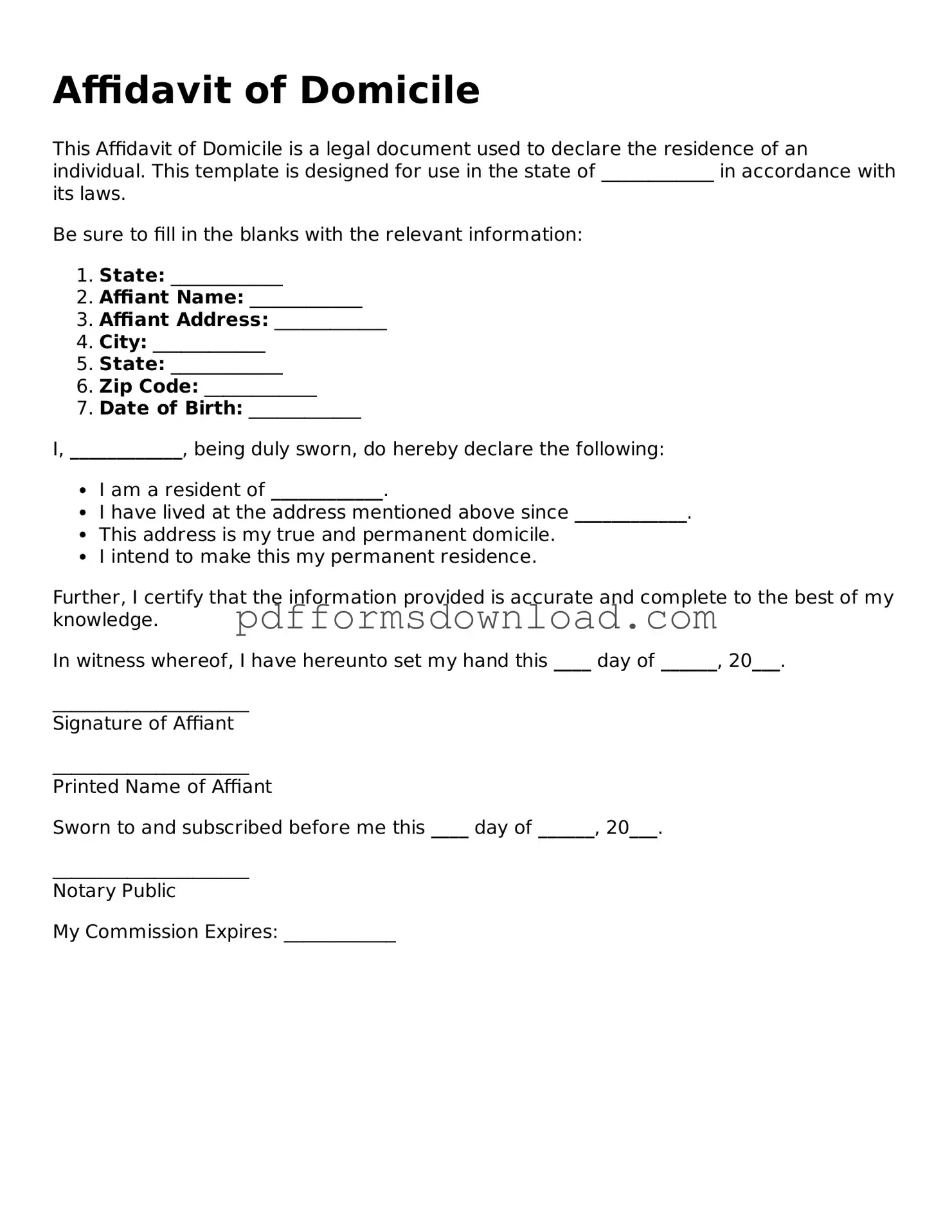Official Affidavit of Domicile Document
The Affidavit of Domicile is a legal document used to declare an individual's permanent residence, often required for estate matters or transferring assets. This form serves to clarify the domicile of a deceased person, ensuring that their estate is administered according to the laws of the appropriate jurisdiction. Understanding the importance of this document can simplify the process of settling an estate and facilitate the distribution of assets.
To fill out the Affidavit of Domicile form, click the button below.
Make This Document Now

Official Affidavit of Domicile Document
Make This Document Now

Make This Document Now
or
Free PDF File
Your form is almost ready
Complete your Affidavit of Domicile online — edit, save, and download easily.